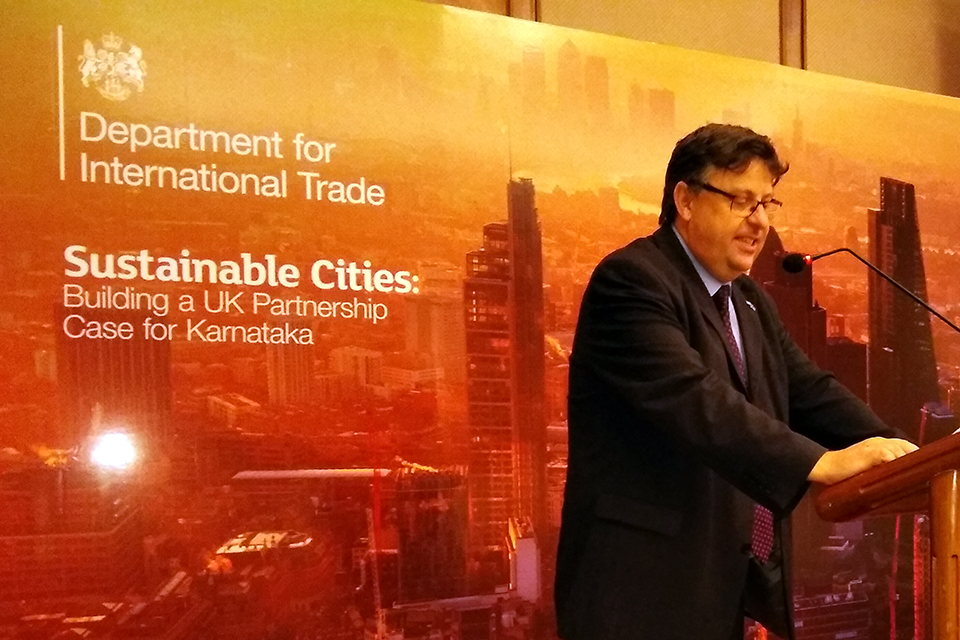Sustainable cities: building a UK partnership case for Karnataka
Speaking points for British Deputy High Commissioner Bengaluru, Dominic McAllister at roundtable on sustainable cities, Tuesday 7 February.

Ladies and gentlemen,
It gives me immense pleasure to be speaking here today at sustainable cities: building a UK partnership case for Karnataka.
I have been in Bengaluru for over a year now and I now know why it is called the start up city, innovation city and known by many other names.
In spite of the multiple names, the strength of a city is its people. I won’t cite statistics in a room full of experts. We are aware that cities are growing at much faster rate due to inflow of people in search of better jobs, amenities and a better standard of living. But at the same time, this inflow is putting pressure on the available resources and that is why urban planning becomes crucial.
The choices that are made today on building designs, waste management, water, energy and food systems, urban ecosystem management, transportation, infrastructure development and retrofitting will have critical implication for future urban habitats.
It is therefore vital to have an integrated and innovative approach as we try to future-proof our cities in the light of changing climate, rising energy prices, increasing demand for water and space.
The UK supports the ‘Make in India’ campaign, as does UK business. The UK is also committed to supporting India’s goal of ‘100 Smart Cities’. Karnataka is developing Mangaluru, Shivamogga, Belagavi, Hubballi-Dharwad, Tumakuru, Davangere and also Bengaluru as smart cities.
UK companies are keen to support India across the entire span of the four-pillar smart city framework/sustainable urbanisation. We have expertise in infrastructure – from smart transport and mobility to water and waste management – in digital – particularly in fin tech and e-commerce – and in design, professional services, healthcare and e-governance.
2012 London Olympics is a good example of developing East London on the principles of sustainable urbanisation where the Olympic Park was created on once contaminated industrial land. 240 electric and hybrid cars were used, food packaging used was compostable, sourcing of materials for various structures was sustainable, and water harvesting, natural lighting lightweight building materials were used. Post the games the waste generated was waste was diverted from landfill, with 62% of that waste being reused, recycled or composted.
- UK’s capabilities lie in urban design, planning and architecture
- UK construction and civil engineering firms lead major urban infrastructure developments worldwide
- there are now over 3,384 low carbon emission buses in the UK. 1,500 hybrid electric buses and 15 pure electric buses also run on London roads. Around 3,000 buses are expected to run on biodiesel, renewable biodiesel from waste products, including cooking oil and tallow from the meat processing trade
- 3.6 GW is generated from off-shore wind, more than anywhere else in the world
- UK is the first developed economy to commit to phase out unabated coal by 2025
- UK remains committed to tackling climate change at home and supporting developing nations to deliver their own climate change goals
Sustainability requires holistic consideration of social, economic and environmental dimensions of urban challenges to develop solutions that meet future needs.
I look forward to hearing your views on sustainable solutions to developing sustainable cities in India.